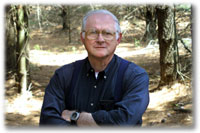Before
cars and trucks, airplanes and trains, horses got us from here to there. In the
villages and cities, horses pulled the milk wagons, hauled the beer wagons, toted
everything that needed toting, including people.
On the
farms, by the 1850s, draft horses began replacing oxen, those docile critters
that did the heavy work of plowing and hauling heavy loads, and providing transportation
for people as well. But they were so slow.
It’s claimed that if a family with oxen wanted to arrive on time for
Sunday church, they had to leave home on Friday.
Soon
draft horses were pulling the plows, the hay mowers and hay wagons, the grain
binders and everything else that needed pulling.
For many
farmers, horses continued doing the heavy work through the Depression years of
the 1930s, and through World War II as well, when tractors replaced the steady
steeds.
Want to
learn more about horses and horse-drawn equipment? Travel to the Wisconsin Historical Society’s
Stonefield Village, near Cassville, where next Saturday, September 29 you can
see horses being harnessed and working. And you can hear me talk about the
history of horses on the farm at 11:00 a.m. and 2:00 p.m.
If you
want to learn still more about horses in our history, check out my book HORSE
DRAWN DAYS, published by the Wisconsin Historical Society Press.
THE OLD
TIMER SAYS: When you farm with horses, you never have to worry about them
starting on a cold winter morning.
Tractors are not that dependable.
UPCOMING
EVENTS:
September
29, Stonefield Village, Cassville, WI.
Horse Drawn Days.
October
3, 6:00 p.m. Onalaska Public Library, Rural Wit and Wisdom
October
4-6 Midwest Booksellers, Minneapolis. Book Signing. RURAL WIT AND WISDOM and my new novel, TAMARACK RIVER GHOST.
October
13, 9-4. The Clearing. Writing Workshop: Writing From Your Life.
(Still some openings. Go to www.theclearing.org for information. Click on workshops.)
